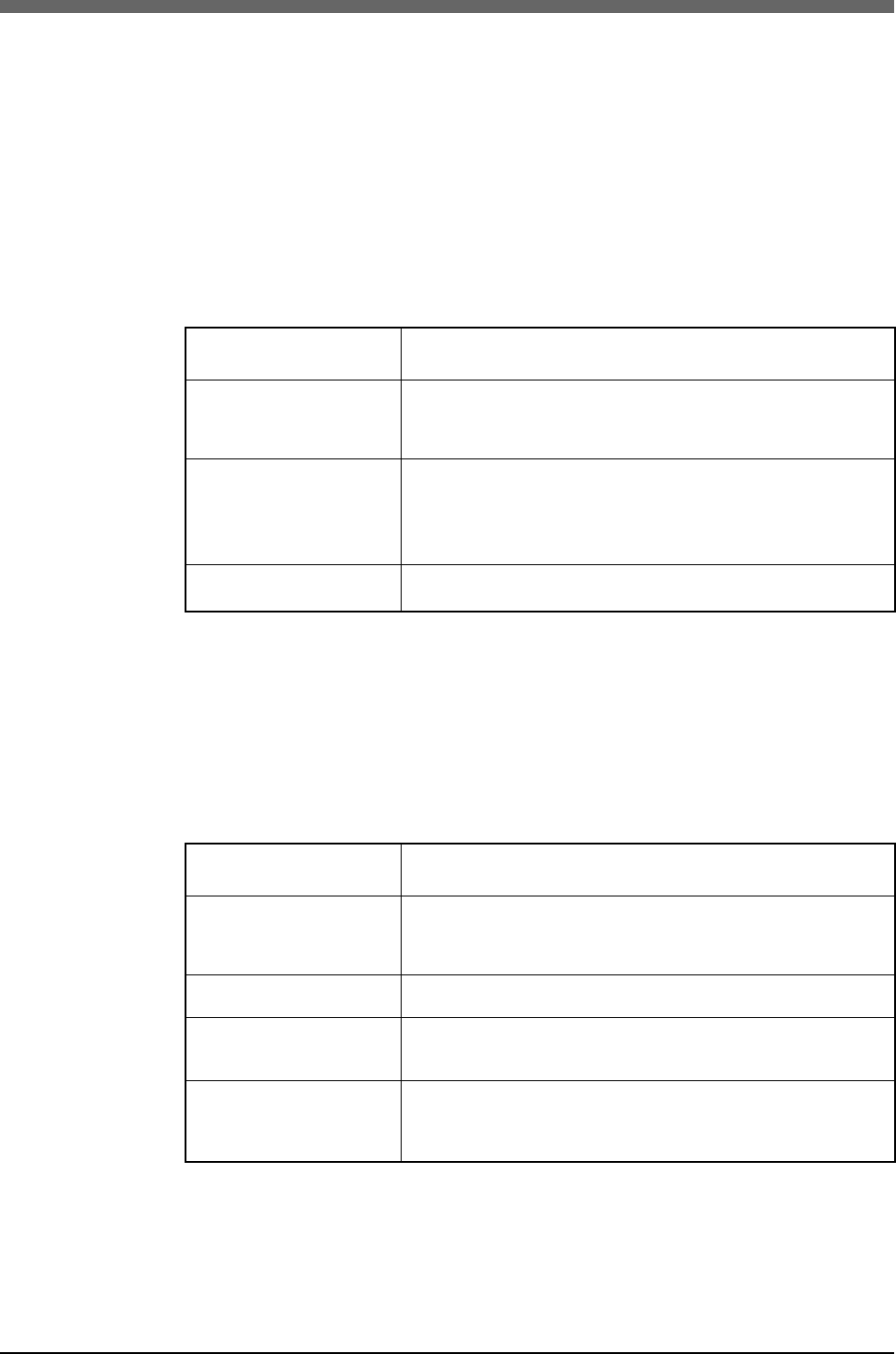
5-3
CHAPTER 5 Periodic Inspection
3 Daily Inspection
The following is an inspection list that must be performed every day before and
after operating the robot.
(1) Inspection to be performed with the controller turned off
1) Turn off the controller.
2) Place a sign indicating the robot is being inspected, to keep others from
operating the controller switch.
3) Enter the safeguard enclosure and check the following points.
Checkpoint Procedure
Machine harness
Robot cable
User cable and wiring
Check for scratches, dents and excessive bend and kinks.
(If the machine harness or robot cable is damaged, contact YAMAHA
dealer.)
Regulator, joints, air tube,
solenoid valve, air cylinder
Check air pressure.
Check for air leaks.
Check drain.
Check air filter for clogging or damage.
Robot exterior Check for damage. (If a damage is found, contact YAMAHA dealer.)
(2) Inspection to be performed with the controller turned on
1) Check that no one is inside the safeguard enclosure, and then turn on the
controller.
2) Place a sign indicating the robot is being inspected, to keep others from
operating the controller, programming unit or operation panel.
3) Check the following points from outside the safeguard enclosure.
Checkpoint Procedure
Safeguard enclosure
Check if the safeguard enclosure is in place.
Check if emergency stop is triggered when the door is opened.
Check if warning labels are affixed at the entrance and clearly visible.
Emergency stop device Press the emergency stop button to check if it works.
Robot movement
Check for abnormal movement and excessive vibration and noise. (If
any abnormal symptom is found, contact YAMAHA dealer.)
Z-axis brake operation *1
Check if the brake works to stop the Z-axis from dropping more than
3mm from the stationary point. (If any abnormal operation is found,
contact YAMAHA dealer.)
*1 Visually check the Z-axis movement when you press the emergency stop
button from outside the safeguard enclosure and also when you turn off the
controller.


















